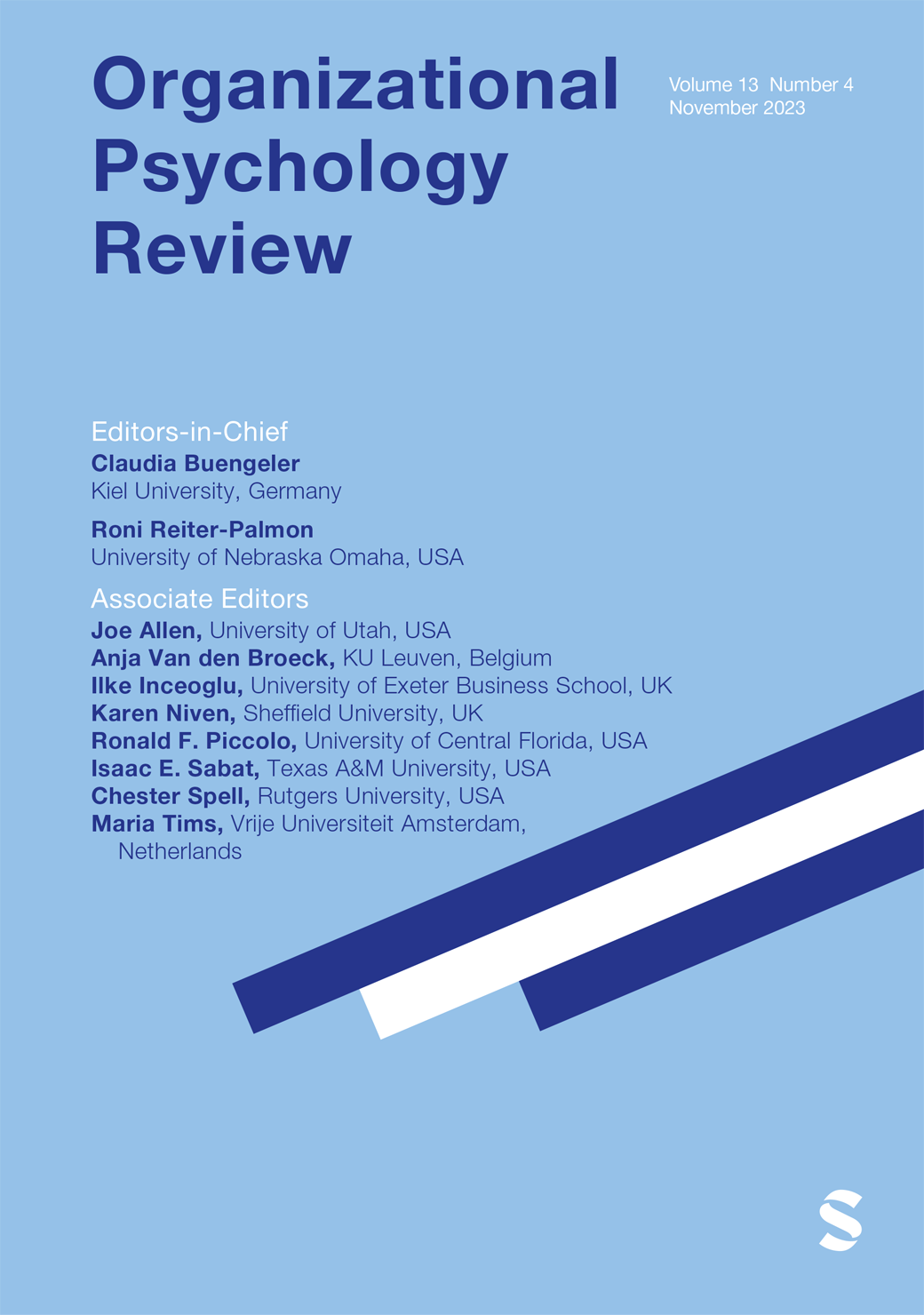来自(新的)编辑
IF 7.1
1区 心理学
Q2 MANAGEMENT
引用次数: 1
摘要
我们很荣幸担任组织心理学评论(OPR)的掌舵人。当然,我们要感谢我们的副编辑团队:Claudia Buengeler、Karen Niven、Jennifer Overbeck、Jana Raver、Marissa Shuffler、Chester Spell、Maria Tims和Mary Waller,我们很高兴拥有他们,他们都对加入我们的冒险充满热情。在我们的创刊号上,我们想窥探一下我们对该杂志的愿景。本文章由计算机程序翻译,如有差异,请以英文原文为准。
From the (new) editors
We are honored to assume the helm at Organizational Psychology Review (OPR). Of course we want to thank our Associate Editor (AE) team: Claudia Buengeler, Karen Niven, Jennifer Overbeck, Jana Raver, Marissa Shuffler, Chester Spell, Maria Tims, and Mary Waller, all of whom we are delighted to have, and who were enthusiastic about joining our adventure. On our inaugural issue, we wanted to provide a sneak peek at our vision for the journal.
求助全文
通过发布文献求助,成功后即可免费获取论文全文。
去求助
来源期刊

Organizational Psychology Review
Multiple-
CiteScore
10.00
自引率
1.60%
发文量
25
期刊介绍:
Organizational Psychology Review is a quarterly, peer-reviewed scholarly journal published by SAGE in partnership with the European Association of Work and Organizational Psychology. Organizational Psychology Review’s unique aim is to publish original conceptual work and meta-analyses in the field of organizational psychology (broadly defined to include applied psychology, industrial psychology, occupational psychology, organizational behavior, personnel psychology, and work psychology).Articles accepted for publication in Organizational Psychology Review will have the potential to have a major impact on research and practice in organizational psychology. They will offer analyses worth citing, worth following up on in primary research, and worth considering as a basis for applied managerial practice. As such, these should be contributions that move beyond straight forward reviews of the existing literature by developing new theory and insights. At the same time, however, they should be well-grounded in the state of the art and the empirical knowledge base, providing a good mix of a firm empirical and theoretical basis and exciting new ideas.
 求助内容:
求助内容: 应助结果提醒方式:
应助结果提醒方式:


